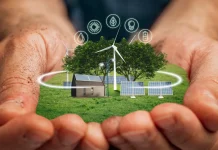According to a report from the Africa Solar Industry Association (AFSIA), Nigeria has increased its solar energy capacity by 63.5 Megawatt peak (MWp) in 2024, bringing the country’s total installed capacity to 385.7 MWp by the end of the year.
The report highlights that Nigeria’s growing interest in solar energy is largely driven by the removal of fuel subsidies, which has led many Nigerians to seek more affordable alternatives. AFSIA notes that the fuel subsidy removal is contributing to a rising demand for solar-plus-storage solutions as a cheaper substitute for diesel.
In the AFSIA Africa Solar Outlook 2025 report, Nigeria ranks fourth in Africa for solar energy capacity. This growth is largely due to the high cost of electricity from the national grid and an increasing shift toward solar energy. South Africa remains the leader in Africa’s solar market and is the only African country in the “Gigawatt Club.” Egypt moves up to second place with the launch of two major solar projects in Kom Ombo. Zambia ranks third, having turned to solar to mitigate severe load-shedding issues. Angola returns to the top five after completing its utility-scale solar projects with MCA and Sun Africa.
Globally, solar installations reach new heights in 2024, with 503 GWp of capacity added, reflecting a 44% increase over 2023. In Africa, solar growth is more moderate but still solid, with 2.5 GWp of new installations in 2024. By the end of the year, Africa’s total solar capacity reaches 19.2 GWp (excluding residential installations). This marks the third consecutive year of over 2 GWp of installations, indicating healthy industry growth.
However, the report points out that Africa still represents less than 1% of the global solar market, suggesting there is substantial potential for further expansion across the continent.
AFSIA CEO, John van Zuylen, shared insights from the report during the Powerelec Nigeria conference in Lagos. He noted that while solar energy is expanding across Africa, the business remains highly concentrated in a few countries. In 2024, South Africa and Egypt together accounted for nearly 80% of all new solar installations, with South Africa contributing 50% and Egypt 29%. However, van Zuylen expects more widespread adoption of solar energy as multiple projects progress in countries that are new to the sector.
Van Zuylen also pointed out that the Central African Republic leads in the share of national electricity coming from solar, with over 40% of its grid electricity derived from solar power. Other African nations such as Mauritania, Namibia, Somalia, Malawi, The Gambia, and Cape Verde also see significant contributions from solar, each generating over 10% of their electricity from solar energy.
Despite the increase in solar capacity, solar energy still accounts for only 1.6% of Nigeria’s total energy mix in 2024. This reflects the ongoing need for investment and expansion in the country’s renewable energy sector.













